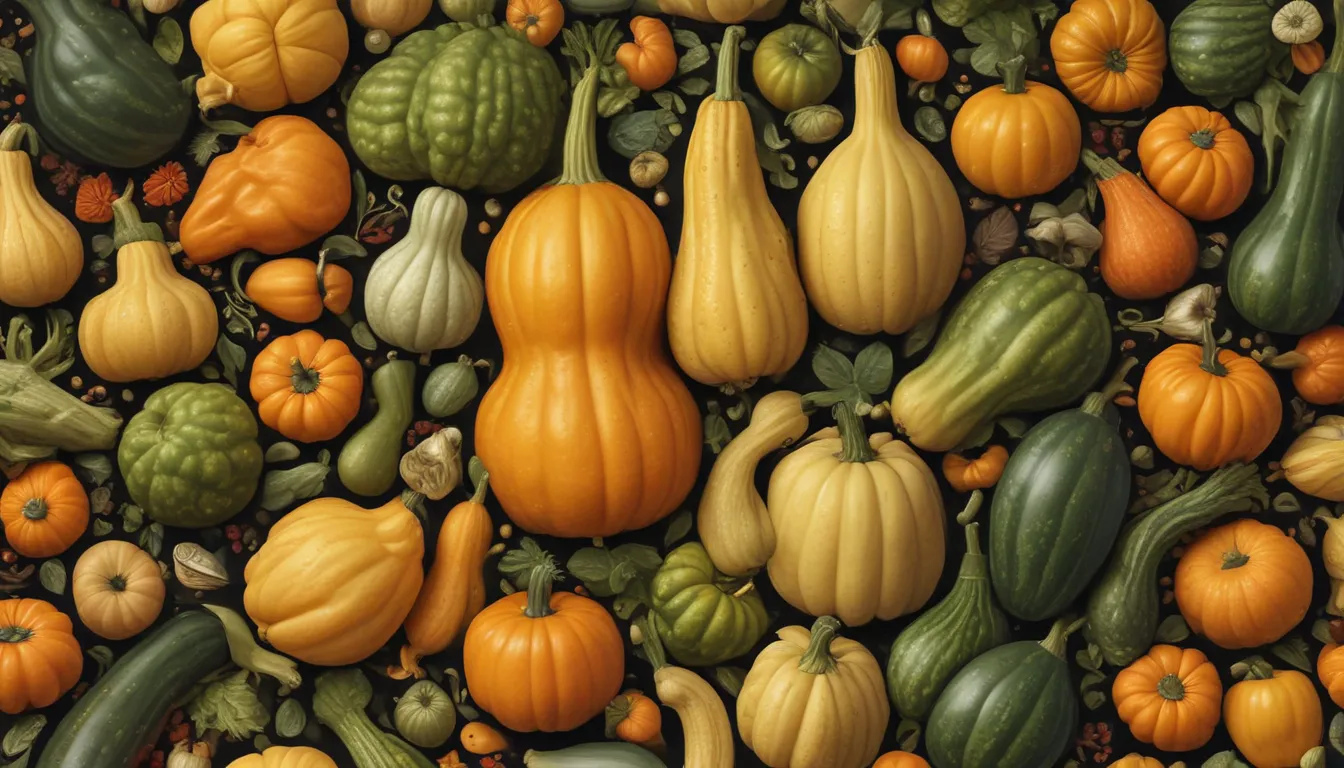The pictures in our articles might not always show exactly what the text is talking about. We use these images to make the article more interesting and eye-catching. They are there to add to the text, but not to replace it or show every detail.
If you're looking to add a nutritious and delicious vegetable to your meals, squash is the perfect choice. This versatile vegetable comes in a variety of types, each offering unique flavors and textures. From its rich history dating back over 10,000 years to its culinary versatility, squash is a powerhouse of nutrients that can enhance your overall well-being.
Unveiling the Beauty of Squash
Squash belongs to the gourd family, which includes cucumbers and melons. Originating in the Americas, squash has been cultivated for centuries, making it a staple in many diets worldwide. There are two main types of squash: summer and winter. Summer squash, such as zucchini and yellow squash, have a soft skin and are best enjoyed when young and tender. On the other hand, winter squash, like butternut and acorn squash, have a hard outer rind and can be stored for long periods.
Nutritional Powerhouse of Vitamins and Minerals
Squash is not only flavorful but also rich in essential nutrients like vitamin A, vitamin C, potassium, and fiber. This makes squash a valuable addition to a balanced diet that can help support your overall health. Pumpkins, often associated with Halloween, are a type of squash with various sizes and culinary uses.
Endless Culinary Possibilities
Cooking squash is a delightful experience, with various methods such as roasting, steaming, sautéing, and grilling. Each cooking technique brings out unique flavors and textures, allowing for a multitude of culinary creations. Don't discard the seeds! They can be roasted into a crunchy snack or used as toppings for salads.
Exploring the World of Squash Varieties
Winter squash boasts over 100 different varieties, from well-known options like butternut and spaghetti squash to lesser-known ones like Hubbard and Kabocha squash. With its low calorie count, squash is an excellent option for those mindful of their calorie intake. Additionally, squash flowers are not just visually appealing but also edible and can be used in various delicious dishes.
Fun Facts and Trivia
Squash has been cultivated for over 10,000 years, making it one of the oldest known crops. Its high water content makes it a hydrating vegetable, perfect for keeping you refreshed and satisfied. The vibrant colors of certain squash varieties can be used as natural dyes for fabrics and crafts.
The Versatility of Squash in the Kitchen
Squash can be a versatile ingredient in both sweet and savory dishes. From soups and stews to pies and bread, there are endless ways to incorporate squash to add flavor, texture, and nutritional value to your meals. In fact, the largest squash ever recorded weighed over a ton, showcasing the impressive diversity within the squash family.
Embracing Squash for Health and Well-Being
Squash plants have both male and female flowers, essential for pollination and fruit production. Beyond just the fruit, the leaves and stems of squash plants are also edible and can be cooked and enjoyed. Squash can also serve as a natural remedy for digestive issues due to its high fiber content.
Adding Squash to Your Meal Planning
For those looking to stock up during the harvest season, winter squash varieties can be stored for several months in a cool, dry place. Whether you're a culinary enthusiast or simply seeking a nutritious addition to your diet, squash is a fantastic choice with numerous health benefits.
Conclusion: Embrace the World of Squash
Squash isn't just a vegetable; it's a culinary adventure waiting to be explored. With its array of flavors, textures, and health benefits, squash is a versatile and delicious addition to any meal. So next time you're at the grocery store or farmers market, pick up a vibrant squash and dive into the wonderful world of culinary creations.
FAQs: Exploring Squash Further
- What is squash? Squash is a versatile vegetable that comes in various shapes, sizes, and colors, belonging to the gourd family.
- How do you cook squash? There are numerous ways to cook squash, including roasting, sautéing, boiling, and steaming, suitable for a wide range of dishes.
- Is squash good for you? Absolutely! Squash is packed with essential vitamins and minerals, making it a healthy and nutritious choice.
- Can I eat the skin of squash? In most cases, the skin of squash is edible and provides additional nutritional benefits.
- How do I store squash? Squash should be stored in a cool, dry place away from direct sunlight to maintain its freshness.
- Are there unique varieties of squash? Yes, there are many unique squash varieties, each offering distinct flavors and textures for culinary exploration.
Our dedication to delivering accurate and engaging content ensures that each fact about squash is authentic and informative. Join us in exploring the fascinating world of squash and elevate your culinary creations with this versatile and nutritious vegetable.






